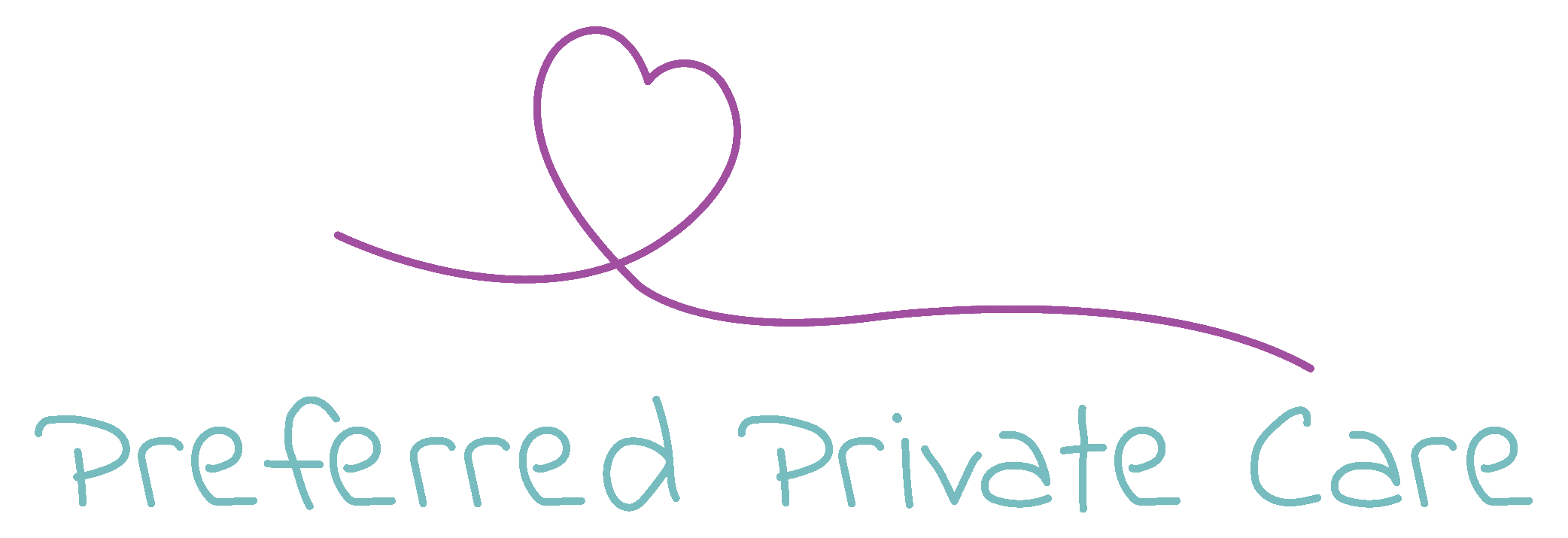How to Recognize Early Signs of Cognitive Decline Effectively

Practical Insights on Recognizing Early Signs of Cognitive Decline
Are you noticing changes in daily habits that cause concern? This post explains common behavioral signs and examines the impact these changes have on everyday routines. It shares practical methods for keeping track of cognitive decline and offers guidance that meets the needs of seniors and veterans. Readers gain useful tips and clear advice that can help ease worries and support better home healthcare outcomes.
Identify Common Behavioral Changes of Cognitive Decline

Common signs include frequent memory lapses and forgetting daily tasks, shifts in social participation, and challenges following conversations. Changes in mood, disorientation to time or place, and decision-making difficulties are also noted. Such observations assist home care providers, assisted living facilities, sms services, and family caregivers in supporting those with dementia.
Notice Frequent Memory Lapses and Forgetfulness in Daily Tasks
Memory lapses and challenges in recalling daily routines are noticeable signs that may suggest a shift in cognitive function. In settings where senior care is provided, home care assistance professionals carefully monitor these instances, making adjustments that help reduce cost and improve overall well-being.
Attentive caring involves observing these memory gaps to ensure that each individual’s needs are met effectively. Experts in senior care often recommend reviewing nutrition plans and daily schedules to support an environment that fosters stability and safety.
Observe Changes in Social Engagement and Participation Levels
Observing reduced interaction during community or family events may indicate early cognitive shifts in a patient. Professionals note that such behavior, when combined with memory issues and changes in routine, can offer key information for adjusting health insurance support for seniors.
A decline in social participation often reveals that a patient is facing challenges beyond memory lapses alone. Experts in home care routinely monitor these shifts to provide the right information to families, ensuring that health insurance providers and care teams address the evolving needs of seniors.
Track Difficulties in Following Conversations or Topics
Observing difficulties in following conversations serves as a practical indicator of cognitive changes within a senior living environment. Care professionals in senior home care routinely note when individuals lose track of topics, a sign that may be supported through resources provided by Medicare and Medicaid programs.
Experts emphasize that tracking conversation challenges offers actionable insights to improve care plans. This focused attention on communication patterns supports accurate assessments and helps seniors live with greater confidence in their daily interactions.
Watch for Altered Mood and Emotional Responses
Professionals observe that unusual shifts in mood and emotional responses can signal early cognitive changes, affecting activities of daily living and care needs. A careful review of these signs aids in timely adjustments to health care plans, potentially impacting insurance assessments and nursing support provisions.
Home care experts note that unexpected emotional reactions serve as practical indicators for reevaluating care strategies, ensuring that all aspects, including tax considerations linked to insurance benefits, align with patient needs. Regular assessments help guide professionals in fine-tuning care, which optimizes nursing practices and supports overall patient stability.
Recognize Patterns of Disorientation to Time or Place
Professionals note that noticing disorientation to time or place can help a caregiver identify emerging cognitive challenges. With clear communication channels such as an email address provided for support and local services identified by zip code, caregivers gain practical tools to connect with professionals for timely assistance.
Caregivers observe that individuals who struggle with regular routines often require extra attention when they become confused about their environment. Utilizing local resources to confirm details like zip code information and scheduling consultations via a designated email address strengthens support plans and improves care outcomes.
Monitor Changes in Problem-Solving Abilities and Decision-Making
Care professionals regularly monitor shifts in problem-solving skills, as subtle changes may indicate early cognitive alterations. Observing these differences helps guide adjustments in care plans and improve decision-making support for individuals requiring non skilled home care.
Assistance teams track decision-making patterns to better understand emerging cognitive challenges. This careful monitoring provides practical insights for tailoring care approaches that support seniors and veterans living with early signs of cognitive decline.
Understand the Impact of Cognitive Decline on Daily Life

This section examines how cognitive issues affect daily routines, work performance, and personal relationships. It reviews safety concerns, changes in hobbies, and environmental factors. Each topic offers practical insights for non skilled home care professionals supporting seniors and veterans experiencing early cognitive decline.
Evaluate How Daily Routines Are Affected by Cognitive Issues
Cognitive issues can alter daily routines as familiar activities become less predictable. Home care providers note that changes in meal preparation, medication management, and personal hygiene usually signal early signs of cognitive decline in seniors and veterans.
Everyday scheduling shifts can lead to missed appointments and irregular habits. Experienced care professionals monitor these variations to support adjustments in non skilled home care approaches, ensuring a stable living environment.
Assess the Influence of Cognitive Decline on Personal Relationships
Cognitive decline often alters how individuals connect with family and friends. Professionals in home care note that changes in communication may lead to misunderstandings, requiring adjustments in interactions to maintain strong personal relationships.
Care experts report that early cognitive shifts can create tension in social settings, making it challenging for seniors and veterans to engage fully. Timely support and tailored care strategies offer practical ways to address these issues and reinforce reliable bonds with loved ones.
Discuss Challenges With Work Performance and Responsibilities
Work performance may suffer as cognitive changes slow down task completion and complicate decision-making processes. Professionals note that individuals experiencing early cognitive shifts often find it challenging to manage work responsibilities efficiently, impacting productivity and confidence.
Responsibility handling becomes more demanding when cognitive decline subtly influences work habits. Observations in home care settings indicate that seniors and veterans may require tailored support to adapt to evolving work demands, ensuring stability and clarity during daily engagements.
Identify Safety Concerns Associated With Cognitive Decline
Cognitive decline raises safety issues in the home care environment that professionals closely monitor. Home care experts observe behaviors that can lead to accidents such as falls or medication mix-ups, ensuring that supportive measures are promptly implemented.
Skilled care teams promptly respond to emerging safety concerns by re-evaluating routines and adapting care strategies. This proactive approach assists in reducing potential hazards and reinforces a secure daily environment for seniors and veterans.
Analyze the Effect on Personal Interests and Hobbies
Experts observe that cognitive decline alters personal interests and hobbies, causing shifts in engagement with familiar activities. Clinicians in non skilled home care since 2007 note that individuals may gradually lose interest in pursuits they once deeply enjoyed, prompting a need for reevaluation of care strategies.
Practitioners closely monitor changes in leisure activities to tailor support that maintains a balanced lifestyle. Through practical assessments, care teams provide essential guidance to seniors and veterans, ensuring that adaptations in hobbies lead to improved well-being.
Recognize the Role of Environmental Changes in Cognitive Decline
Environmental factors such as changes in lighting, noise, or room layout can trigger shifts in cognitive behavior. Home care professionals since 2007 monitor these variations closely to minimize confusion among seniors and veterans, ensuring that the living space remains supportive.
Practical adjustments to the home environment, like improved organization and simplified layouts, offer clear benefits to those experiencing early cognitive changes. Care teams use these insights to refine non skilled home care practices, providing timely support and fostering daily stability.
Examine Risk Factors Linked to Cognitive Decline

This section examines risk factors impacting early cognitive decline. It discusses age, family history, chronic conditions, lifestyle choices, mental health, and substance use. Each topic offers practical insights to assist professionals in non skilled home care, providing guidance to support seniors and veterans through early identification and appropriate care adjustments.
Investigate the Role of Age in Cognitive Health Deterioration
Age directly influences cognitive health, with older adults experiencing a higher risk of subtle changes in mental processes. Professionals in non skilled home care observe that aging may lead to increased memory lapses and slower decision-making, which serve as important indicators for early assessment.
Research consistently shows that advancing years are linked to a greater likelihood of experiencing cognitive deterioration. Home care experts carefully monitor seniors‘ daily activities to pinpoint early signs, enabling timely interventions that support continued independence and well-being.
Explore How Family History Can Affect Cognitive Abilities
Research in non skilled home care shows that a family history of cognitive challenges can signal an increased risk for early memory issues and slow decision-making. Professionals observe that individuals with relatives who experienced cognitive changes may show similar signs at an earlier stage, prompting careful attention from caregivers.
Experts recommend that documenting family medical history can be a practical step for tailoring care strategies. This information helps home care providers adjust support plans, ensuring that individuals receive the right attention as their cognitive abilities evolve over time.
Evaluate the Impact of Chronic Health Conditions on Cognition
Chronic health conditions such as diabetes and heart disease can influence cognitive abilities by increasing stress on the body and brain. Experts in non skilled home care since 2007 note that these conditions often align with early signs of cognitive decline among seniors and veterans, prompting careful observation and timely care interventions.
Practitioners recognize that effectively managing chronic conditions can help maintain mental clarity and reduce the progression of memory issues. Through regular evaluations, caregivers work to adjust support plans, ensuring that individuals receive appropriate care that addresses both physical and mental health needs.
Discuss Lifestyle Choices That Can Contribute to Decline
Home care professionals observe that lifestyle choices, such as poor dietary habits and limited physical exercise, often contribute to early cognitive decline. They note that regular monitoring of nutrition, activity levels, and substance use provides practical insights to tailor non skilled home care plans for seniors and veterans.
Experts in non skilled home care emphasize that modifying daily routines can mitigate the risk of cognitive issues. They encourage small changes in exercise and meal planning to support mental clarity and improve overall cognitive function in aging individuals.
Identify How Mental Health Conditions Relate to Cognitive Issues
Professional home care professionals note that mental health conditions can influence cognitive function by intensifying memory lapses and slowing decision-making processes. They monitor emotional signs closely, as changes in mood or anxiety levels may serve as indicators of early cognitive shifts.
Experts in non skilled home care since 2007 stress the importance of integrating mental health assessments into routine evaluations for seniors and veterans. They adjust care plans based on observed emotional changes to support cognitive stability and overall daily well-being.
Analyze the Effects of Substance Use on Cognitive Health
Substance use may worsen memory issues and slow down decision-making abilities. Professionals in non skilled home care since 2007 observe that regular consumption of certain substances has led to noticeable cognitive changes among seniors and veterans, impacting daily routines and overall mental clarity.
Experts report that substance use disrupts brain function, contributing to lapses in concentration and challenges in processing information. They advise that careful observation and timely adjustments in care strategies help maintain cognitive health and support a stable living environment for those at risk.
Discover Effective Strategies for Monitoring Cognitive Health

Practical strategies include maintaining a daily log, using easy-to-access assessment tools, and engaging relatives to spot subtle shifts. Regular check-ups, modified lifestyle habits, and targeted mental exercises can support improved cognitive health, offering clear guidance for monitoring early signs of decline.
Create a Daily Log to Track Cognitive Changes Over Time
A daily log proves invaluable in monitoring shifts in memory and behavior over time, especially when caring for seniors and veterans. Experts in non skilled home care since 2007 recommend recording observations each day to help identify trends in cognitive function and adjust care routines accordingly.
Maintaining a clear and simple log allows caregivers to track specific incidents of forgetfulness, confusion, or changes in routine. This practice enables effective communication among care teams and family members, ensuring that support plans are updated based on observable patterns.
Utilize Cognitive Assessment Tools and Apps Available
Cognitive assessment tools and mobile apps offer home care professionals effective methods to record daily observations and track changes in cognitive function over time. These digital resources provide clear snapshots of trends in memory and decision-making, making it easier for care teams to adjust support plans for seniors and veterans.
Using these tools provides practical insights that empower caregivers to capture subtle shifts in mental clarity early on. The real-time feedback system reinforces informed care planning and meets the pressing need for efficient monitoring in non skilled home care since 2007.
Engage Relatives and Friends to Identify Subtle Changes
The involvement of close relatives and friends offers an effective way to monitor early signs of cognitive decline. Their everyday observations can reveal subtle shifts in behavior and memory, providing care professionals with clear, actionable insights to adjust non skilled home care strategies.
Family members and friends often notice small changes in communication and routine that may not be evident to professionals. Their detailed feedback supports senior care teams in updating care plans and ensuring that individuals receive the attention necessary for improved cognitive health management.
Schedule Regular Check-Ups With Healthcare Professionals
Regular visits to healthcare professionals help monitor cognitive health and quickly identify any emerging issues. Professionals use these check-ups to review changes in memory and behavior, enabling tailored adjustments in non skilled home care for seniors and veterans.
Scheduled appointments provide valuable feedback on cognitive performance, leading to early intervention when signs of decline appear. Experts use consistent evaluations to keep care plans updated and ensure that individuals receive the most appropriate support for their evolving needs.
Adjust Lifestyle Habits to Promote Better Cognitive Health
Adjusting lifestyle habits, such as incorporating consistent exercise routines and balanced meal plans, proves effective in supporting cognitive health. Professionals in home care note that simple activities, like regular walks and nutritious food choices, help seniors and veterans maintain mental clarity and foster daily independence.
Care experts observe that slight modifications in daily schedules, including fixed sleep times and mild physical activities, contribute to improved cognitive performance. These practical changes demonstrate firsthand benefits that reinforce a stable environment for monitoring and managing early signs of cognitive decline.
Focus on Mental Exercises to Maintain Cognitive Function
Mental exercises offer practical ways to challenge the mind and monitor cognitive function. Professionals in non skilled home care advocate for regular mental workouts, such as puzzles and targeted activities, to make subtle changes noticeable before they affect daily life.
Engaging in focused cognitive tasks helps caregivers track mental performance and adjust care routines accordingly. This proactive strategy allows seniors to maintain mental agility while providing measurable insights to refine home care plans.
Learn About Professional Evaluation and Diagnosis

This section covers the process of cognitive testing and assessments, the role of neuropsychology in diagnosing decline, and the use of imaging techniques for brain health. It explains how diagnosis impacts treatment decisions, emphasizes early diagnosis for better outcomes, and guides families on documenting symptoms for consultations.
Understand the Process of Cognitive Testing and Assessments
Professional evaluations begin with standardized cognitive tests that gauge memory, reasoning, and attention. These assessments offer clear insights into mental function changes and assist care teams in refining non skilled home care approaches for seniors and veterans.
This process uses defined guidelines to interpret test results and develop tailored support plans. Experts rely on these evaluations to ensure individuals receive timely, personalized care that addresses early signs of cognitive decline.
Discuss the Role of Neuropsychology in Diagnosing Decline
Neuropsychologists assess cognitive function through standardized tests that measure memory, reasoning, and attention. Their evaluations provide useful insights into subtle shifts and patterns that signal early mental decline.
These experts use clear benchmarks to differentiate normal aging from potential cognitive issues. Their findings help care teams design tailored support plans for seniors and veterans, offering practical guidance for non skilled home care strategies.
Explore Imaging Techniques Used to Assess Brain Health
Imaging methods such as MRI and CT scans play a vital role in observing brain health, especially when evaluating early shifts in cognitive function. Experts rely on these visual assessments to guide decisions in non skilled home care and adjust strategies for seniors and veterans.
Clear imaging results offer actionable insights that support the identification of structural changes in the brain. Professionals use these techniques to tailor care plans and address specific needs, ensuring timely interventions for individuals showing initial signs of cognitive decline.
Find Out How Diagnosis Impacts Treatment Decisions
Establishing a diagnosis helps professionals fine-tune treatment approaches and align care plans with each individual’s needs. The detailed evaluation identifies the level of cognitive decline, allowing care teams to implement customized strategies that support stability and independence.
A clear test outcome informs treatment choices and guides non skilled home care providers in adjusting care routines. This targeted insight ensures that seniors and veterans receive prompt assistance and personalized support tailored to their cognitive health status.
Know the Importance of Early Diagnosis for Better Outcomes
Early diagnosis offers a clear path to improved treatment outcomes by enabling care teams to address subtle cognitive changes promptly. Expert evaluation supports tailored non skilled home care strategies for seniors and veterans, ensuring adjustments in daily routines that improve overall well-being.
Timely identification of early cognitive signs assists providers in refining care plans to meet specific needs. Professional assessments not only help in setting focused treatment goals but also guide practical decisions that enhance stability and independence in daily living.
Prepare for Consultations by Documenting Symptoms
Recording clear accounts of observed changes offers professionals a precise picture of cognitive shifts during consultations. Detailed notes that highlight memory lapses, alterations in routine, and communication differences assist experts in making informed evaluations and adjustments in home care strategies.
Keeping written records provides a practical reference for care teams when assessing cognitive health. Organized symptom documentation supports effective consultations, enabling tailored care plans that meet the specific needs of seniors and veterans.
Seek Support and Resources for Cognitive Health

Support groups for individuals and families, educational programs on cognitive decline, wellness resources for brain health, long-term planning with specialists, technology solutions for daily assistance, and community research initiatives offer valuable guidance. This section presents clear and practical insights to help professionals and loved ones address early signs of cognitive decline effectively.
Identify Support Groups for Individuals and Families Affected
Support groups offer a direct way for families and individuals to gain practical advice on identifying early signs of cognitive decline. This resource connects local caregivers and service providers in non skilled home care to share experiences and effective strategies, ensuring a tailored support network for seniors and veterans.
Community-based groups provide essential guidance and peer feedback that highlight actionable insights into managing daily care challenges. Trusted organizations work closely with these groups to help families address changes in mental function promptly and securely.
Explore Educational Programs on Cognitive Decline
Educational programs on cognitive decline offer clear guidance to caregivers and home care providers working with seniors and veterans. These programs present practical information on recognizing early signs of memory lapses and other shifts in cognitive function, helping care teams adjust daily plans effectively.
Training sessions include hands-on activities and straightforward explanations that address common challenges faced in non skilled home care since 2007. Such courses provide actionable advice and support for those seeking to maintain stability and improve cognitive health outcomes in everyday settings.
Discover Wellness Resources for Maintaining Brain Health
Experts note that wellness resources offered by trusted community organizations and home care providers serve as valuable tools for maintaining brain health. They emphasize that easily accessible programs, including exercise classes and educational seminars, provide practical ways to support cognitive function for seniors and veterans.
Practical guidance from professionals in non skilled home care encourages the use of local workshops and support groups to address early signs of cognitive decline. They observe that these activities not only promote mental engagement but also offer a structured approach to improving overall cognitive stability.
Discuss Long-Term Planning Options With Specialists
Specialists provide long-term planning options that guide families and caregivers in addressing initial signs of cognitive decline. Their expertise in non skilled home care aids in developing clear, actionable steps that support stability and well-being for aging individuals.
Professional evaluations enable specialists to tailor long-term plans to each unique situation. This individualized approach ensures that care strategies remain practical and sustainable while effectively managing early cognitive changes.
Connect With Technology Solutions for Daily Assistance
Technology solutions for daily assistance offer practical advantages to caregivers and family members by providing tools that help monitor and support cognitive health. Devices and applications designed for home care offer real-time tracking of routines and simple interfaces that assist seniors and veterans in managing daily tasks while ensuring a comprehensive approach to non skilled home care since 2007.
Care professionals note that using these modern tools helps bridge communication between care teams and clients, ensuring timely insights into cognitive changes. The integration of digital reminders and monitoring systems supports a structured environment, allowing daily adjustments that improve overall stability and empower individuals to maintain independence with confidence.
Advocate for Ongoing Research and Community Initiatives
Home care experts stress the importance of supporting research that enhances understanding of early cognitive changes among seniors and veterans. They advocate for community initiatives that offer reliable data and practical tools to spot subtle shifts in mental clarity.
Specialists encourage local organizations and medical professionals to collaborate on studies focused on cognitive health monitoring. Their efforts aim to build a stronger network of support and resources for non skilled home care providers since 2007, ensuring practical insights reach those who need accurate guidance early on.
Conclusion
Recognizing early signs of cognitive decline gives caregivers a strong foundation to adjust support strategies for seniors and veterans. Monitoring shifts in memory, social engagement, and decision-making offers precise insights into evolving care needs. Home care teams actively use these observations to refine daily routines and ensure personal safety. This practical approach enhances stability and supports a better quality of life for those receiving care.
